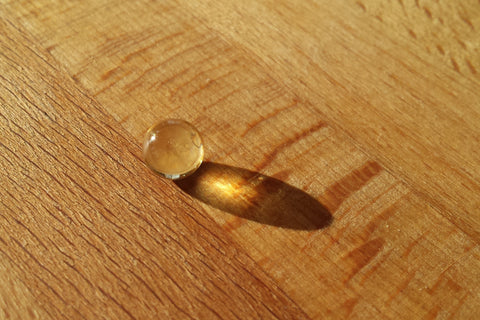CBD Oil vs Cannabinoid-Rich “Full Spectrum” Hemp Extract
Google searches for “CBD” (short for cannabidiol) have increased 10-fold in the past two years — and it seems like everyone is raving about this stress-busting, anxiety-easing compound derived from cannabis (industrial hemp or marijuana).
It’s popping up in all sorts of products, too, like CBD gummies and juices. But most often, you’ll find it sold in a small tincture bottle, sometimes with a dropper, labeled as “CBD oil.” These oils are meant to be taken sublingually — a few drops under the tongue — to promote quick absorption into the bloodstream.
The good news: Research has shown that using CBD in sufficient amounts may have a wide range of health perks for both people and animals, ranging from pain relief to improved mood to balanced blood sugar. The bad news: The way most CBD oil products are manufactured and sold today greatly diminishes their health benefits; and given all the hype surrounding CBD, even subpar companies have been able to capitalize on the trend without much scrutiny.
So, how can you truly reap all the benefits CBD has to offer? This may sound weird, but you should generally avoid products labeled CBD oil or CBD isolate oil; and instead, opt for a high-quality cannabinoid-rich hemp oil — sometimes referred to as full spectrum hemp extract oil or full spectrum CBD oil.

Keeping all of the beneficial cannabis compounds present (i.e. "full spectrum") in the final product is important because they all contribute to the entourage effect — meaning, they all help each other work better.
Here, we’ll explain the difference between the two, and why cannabinoid-rich hemp oil is often a far superior product.
But first, what are cannabinoids and why are they beneficial?
Before we dive into the differences between CBD isolate oil and cannabinoid-rich hemp oil, you need to have a basic understanding of cannabinoids in general.
In a nutshell, cannabinoids are some of the most abundant natural chemical compounds in cannabis. There are more than 100 different cannabinoids that we know of, each with a slightly different effect on the body. The two most prevalent cannabinoids are THC and CBD. As you probably know, THC is the psychoactive compound in cannabis, but for the purposes of this article, we’re only going to focus on the health-promoting, non-psychoactive cannabinoids (you can learn more about THC here).
While CBD is often touted as the main health-promoting component of cannabis, the truth is, many other cannabinoids are also beneficial. In fact, when a variety of cannabinoids are present at the same time, they actually boost the effectiveness of each other. Meaning, a product that simply contains one cannabinoid, like CBD, would be far less beneficial than a product containing a variety of cannabinoids (e.g. CBD, CBC, CBG, CBN). This synergistic relationship between cannabinoids and a few other cannabis compounds (like terpenes and flavonoids) is known as the “entourage effect” — and we’ll talk more about that later.
What makes cannabinoids so special, though? They have an extremely beneficial impact on our body’s endocannabinoid system — this is an offshoot of the endocrine system (or hormone system) that consists of a series of receptors and cannabinoids, and it helps regulate nearly every other system in the body, including the nervous and digestive systems.
Some cannabinoids, called endocannabinoids, are naturally produced within the body, and these are what bind to receptors to make all of our other bodily systems function more optimally. However, some people don’t produce enough endocannabinoids naturally. In that case, taking a supplemental outside source of cannabinoids can help fill the void and allow your endocannabinoid system to function optimally.
Now, let’s talk about what’s actually in a CBD isolate oil and cannabinoid-rich hemp oil — and which one is more beneficial to the endocannabinoid system.
What’s in a CBD isolate oil?
Many CBD oils that are currently on the market are technically CBD isolate oils. This means that they contain the isolated form of CBD (a highly refined, potent, crystalline form of CBD derived from either marijuana or industrial hemp) that’s been diluted in a carrier oil such as olive or coconut oil. This also means they’re free of THC and definitely won’t get you high.
The fact that CBD isolate oils contain just CBD — not the variety of cannabinoids naturally present in the cannabis plant — eliminates the entourage effect and makes them far less beneficial for overall health.
In fact, research on CBD’s pain-fighting properties found that an isolated CBD product was ineffective both before and after a certain dosage, while the effectiveness of a full-spectrum cannabinoid product continued to increase with higher doses. Meaning: CBD isolate oil also has a much narrower therapeutic window (i.e. you have to use a very specific dose to get the effect you want), while cannabinoid-rich hemp oil has a wider therapeutic window due to the presence of additional cannabinoids — which makes it much more useful for the average person.
What’s in a cannabinoid-rich (or "full spectrum") hemp extract?
A cannabinoid-rich hemp extract, like this one from TruestYou, is drastically different from a CBD isolate oil. Instead of isolating one compound from crude hemp oil (as you would to make CBD isolate), a gentle extraction and distillation process is performed to concentrate all of the beneficial hemp compounds, which include a variety of cannabinoids (CBD, CBC, CBG, CBN), terpenes , flavonoids, vitamins, minerals, and fatty acids. This “distillate,” which consists of around 70% CBD and 30% other beneficial compounds, is then combined with a carrier oil such as coconut oil to help improve its absorption when taken sublingually (under the tongue); or it can be used in vaporizers as is.
Keeping all of the beneficial cannabis compounds present in the final product is important because they all contribute to the entourage effect — meaning, they all help each other work better. This means, they’re more effective at optimizing the function of your body’s endocannabinoid system.
If you think about it, this makes total sense, since a similar synergistic relationship takes place between the micronutrients within nearly all the plant and animal foods we consume. Consider fish: The regular consumption of fatty fish like salmon has been linked to all sorts of health benefits such as reduced risk of heart disease, while taking omega-3 fish oil pills hasn’t been as promising. Same goes for vitamins and antioxidants, which time and again have been proven much more beneficial when consumed from foods, like deeply hued berries, rather than supplements, like resveratrol.

It has been proven time and again that consuming whole foods is more effective for supplement absorption than isolated compounds.
One more important note: Some cannabinoid-rich hemp oils contain a very small amount of THC (typically 0.3% or less), which is pretty negligible. But a few companies, like TruestYou, go a step further to remove 100% of the THC through a process called reverse chromatography. These products are your best bet because they will never show up on a drug test, even with very frequent use. Plus, there’s no real benefit to having THC in your cannabinoid-rich hemp oil anyway.
Bottom line: Full spectrum hemp oil > CBD
It’s really no contest. Cannabinoid-rich hemp oil is far superior to CBD isolate oils due to the presence of additional beneficial compounds like cannabinoids, terpenes, flavonoids, vitamins, minerals, and fatty acids — and probably some compounds we haven’t even discovered yet! These all contribute to the entourage effect, which boosts overall health by optimizing the body’s endocannabinoid system. So, if you’re looking to reap the benefits of CBD, always be sure to buy a cannabinoid-rich hemp oil containing a variety of cannabinoids and terpenes, like this full spectrum hemp oil extract from TruestYou.
—————————————————
Written by health coach and wonderful human being, Steph Eckelkamp. Check out some of her other informative articles on her website.
Disclaimer: The information in this article is not intended to diagnose, treat, cure, or prevent any disease, and has not been evaluated by the Food and Drug Administration.
